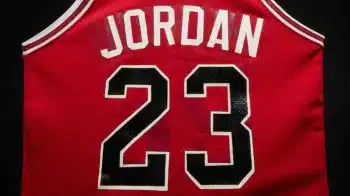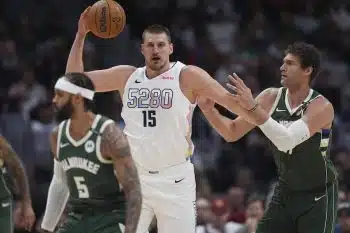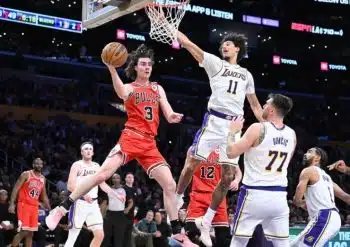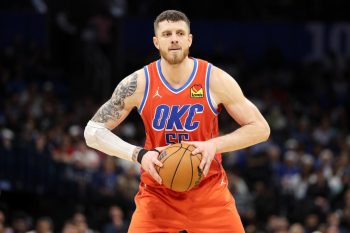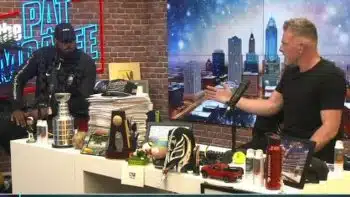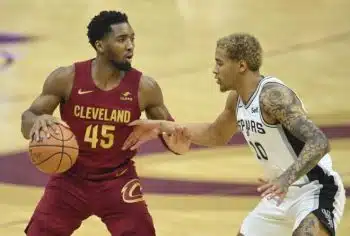NBA
Now What? The Orlando Magic
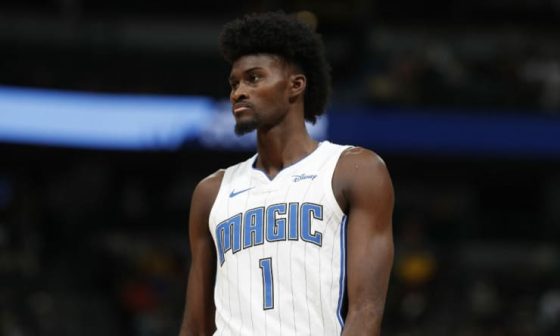
After two consecutive years of being the seventh or eighth seed in the Eastern Conference and quickly exiting the playoffs after an uncompetitive first-round series, the Orlando Magic broke up the core of those teams at this year’s trade deadline.
We give research-based suggestions for the finest Florida sports betting sites that accept bets from US citizens in our guides on the best Florida sports betting.
Gone are stalwarts like Nikola Vucevic, who became a two-time All-Star during his time in Orlando. The same goes for Aaron Gordon, a former fourth overall pick, who, for as valuable a role as he occupies, never developed into the player the Magic were hoping for when they drafted him. And while Evan Fournier’s game blossomed in Orlando, developing into one of the team’s leading scorers, at the deadline, the Magic moved on from him as well.
As difficult a decision as that may have been, doing so increased the odds of Orlando securing one of the top picks in this year’s draft. Since the trade deadline, the Magic are 3-14 with the second-worst record in the NBA. That has them on pace to be one of the three teams with the highest odds of getting the top pick in this year’s draft. Even if they don’t win the Cade Cunningham sweepstakes, they’d have a 52.1 percent chance of getting a top-four selection. Doing so would put them in a position to take one of this year’s other tantalizing top prospects, such as Jalen Suggs, Evan Mobley, or Jonathan Kuminga.
The moves the Magic made at the deadline have also improved the outlook on their future cap sheets. After this season, Vucevic still has two more years left on his deal at over $20 million each. Gordon’s owed $16.4 million next season and, after that, he’ll be an unrestricted free agent who won’t come cheap. Al-Farouq Aminu, who went to the Chicago Bulls with Vucevic, is scheduled to make $10.2 million next season. Sure, Gary Harris Jr., who Orlando acquired in the deal that sent Gordon to the Denver Nuggets, is on the Magic’s books for $20.5 million next season, but it remains true that the moves they made have cleared future cap space that can aid their rebuilding efforts.
The third feat the Magic accomplished at the trade deadline was acquiring multiple young players the franchise finds intriguing. Wendell Carter Jr. was selected one pick after Mo Bamba in 2018 and began his career by displaying the two-way impact that made the former Duke Blue Devil one of the top centers in his draft class. However, thanks in part due to injuries, Carter’s career has gotten off track. Still, he turned 22-years-old this month and he’s under contract for next season, giving the Magic more than merely a brief opportunity to see if they can help him grow into their center of the future. Carter’s presence could also light a spark under Bamba.
Then, there’s R.J. Hampton. After playing 25 games with the Nuggets, the 24th overall pick in this year’s draft has nearly matched that figure since relocating to Orlando. In his 16 games with the Magic, Hampton’s averaging 9.2 points, 3.8 rebounds, 1.6 assists and nearly a steal per game while shooting 50 percent from inside the arc on 5.9 two-point attempts per game. He’s come off the bench in all but one game for Orlando and that figures to be the case next season. But given his first-step quickness and body control, as a raw talent who turned 20 in February, he offers intriguing upside, especially if he ever turns into a shooter defenders have to respect from beyond the arc.
Like with Carter and Bamba, Hampton’s competing for minutes with a fellow first-round pick from his draft class in Cole Anthony. The former North Carolina Tar Heel’s struggling to find his shooting touch in his first NBA season, connecting on just 31.7 percent of his three-point attempts and 39 percent of all of his field goals. Still, he’s found ways to average nearly 12 points per game while also contributing 4.5 rebounds and 4.4 assists. While Anthony’s started the majority of the games he’s played in, he may ultimately prove more valuable coming off the bench. The Magic don’t have to choose between Hampton and Anthony this offseason but, if neither player improves from beyond the arc or seizes control of a starting spot in Orlando’s backcourt, the Magic will probably be better off trading one of them.
Then there’s the case of Markelle Fultz. On the eve of the regular season, the Magic signed him to a three-year $50 million contract. The hope was that his growth would combine with the team’s continuity to push them higher up the standings this season. The boost Orlando’s offense got from his court vision and playmaking were reasons to be optimistic about that coming to fruition. However, eight games into the 2020-21 campaign, Fultz tore the ACL in his left knee, bringing an abrupt end to his second season with the Magic. Fultz turns 23 in May, so time is on his side, but he’s only played in 121 games the last four seasons, excluding exhibition and Summer League contests. Even with his innate feel for the game, missing that much time during critical years in his development will make it hard for him to live up to his new contract.
Injuries have also plagued Jonathan Isaac. Since Orlando made him the sixth pick in the 2017 draft, he’s missed 162 regular-season games and played in 136. When Isaac’s on the floor, he can be an elite defender with the versatility to switch in most instances. But because he’s been more likely to be in street clothes than in uniform, Isaac remains raw offensively. He shot 34 percent from beyond the arc last season. If he can become a reliable spot-up shooter who can space the floor and work as a dynamic pick-and-roll partner who can produce points diving to the rim and popping behind the three-point line, he’ll provide considerable value on both ends. That’s a development that would make him a foundational building block for the Magic moving forward.
Another promising prospect in Orlando’s frontcourt is Chuma Okeke. He sat out last season while recovering from an ACL tear he suffered in college, but the rookie forward’s demonstrating more of an offensive feel for the game than the majority of the Magic’s first-round picks of the last decade. Like Isaac, Okeke’s best suited to play the four, but as long as the former’s healthy next season, Orlando will be able to see how effectively they play alongside each other. Isaac’s defensive versatility and Okeke’s ability to make the game easier for his teammates offensively could allow them to work well together.
As the Magic embark on their rebuild, they’re going to need veteran leaders to help guide the team’s younger players. That’s why it’s in their best interest to re-sign Terrence Ross. He’s spent five seasons in Orlando and helped them end a six-year playoff drought. However, he’s still an effective scorer who can produce points in bunches, so he may not want to stick around for a rebuild.
The Magic’s rebuild began at the trade deadline and the draft is of critical importance to their future outlook. Luckily, they’re in a position to get a top prospect. Unfortunately for them, there are too many instances where that hasn’t worked out. But they moved on from a core group of players who were beloved by their fans and could get counted on to reach the postseason so they could reinvigorate the franchise and build a team that can go further in the playoffs. To accomplish that, it’s paramount they draft based on who’s the best player available rather than emphasizing who fits in with their current roster. They don’t have anyone who’s established themselves as a foundational player.
Lastly, the Magic need to ask themselves how far removed they are from becoming an attractive destination to marquee free agents. It’s happened in the past with Tracy McGrady and Grant Hill. And they nearly landed Tim Duncan. They’re in a warm climate and there’s no state income tax, top-tier free agents have taken their talents to Orlando before and it can happen again. For that to happen, the culture needs to be appealing, they’ll need promising players and it may require having the necessary cap space to bring in a star tandem. They can accomplish each of those tasks and the moves they made at the deadline are a step in that direction. But it’s much easier to tear something down. Now, it’s time for the most challenging parts of launching a rebuild that’s more successful than what they’ve done the last two years.
